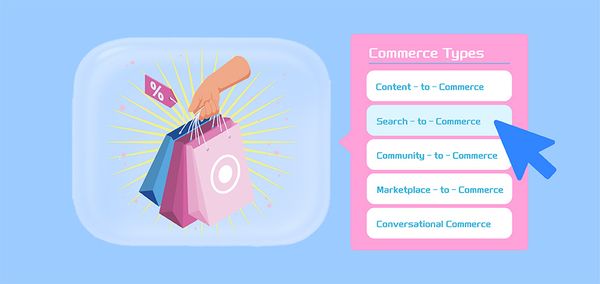Relationship Marketing 101: Basics, Types & Benefits

As experienced business owners, acquiring a new customer is about five times more expensive than keeping the ones you already have. Also, the moment you stop prioritizing your audience, they will stop buying from you. The way business owners manage their customers is changing with time. Modern customer relationship management is more about building long-term relationships with buyers and treating them as unique individuals. By focusing on customer experience, brands are more likely to create long-term customers who are more forgiving when the brand makes mistakes.
One of the business strategies effective in building solid business-customer relationships is Relationship Marketing. If you'd like to know more about the basics, facts, types, and benefits of Relationship Marketing, read this write-up further.
What Is Relationship Marketing
Relationship Marketing is a part of customer relationship management and focuses on building long-term and healthy relationships with customers rather than getting their attention for a short time. The basic principle of Relationship Marketing is when you connect with your customers emotionally rather than just treating them like customers it affects the ongoing growth of your business. In addition, when your customers feel valued, they spread the word about your brand and generate more leads for it.
| Get Started Now to Grow Your Online Business with the Best AliExpress Dropshipping Tool - DSers! |
Relationship Marketing is completely different from traditional marketing. In traditional marketing, your strategies focus on ways to bring conversions, giving importance to individual sales. In addition, you have to ignore the behavior completely and just focus on the sales factor. Relationship Marketing takes the place of all traditional marketing strategies when it comes to retaining your current customer base.
Types of Relationship Marketing
The way businesses put effort into their marketing strategies keeps on changing. Similarly, Relationship Marketing also has some variations, and five of them are:
1. Basic Marketing
Basic Marketing is the typical form of relationship marketing, where a company tries to convince customers to make a purchase. The main focus is on showing the qualities of a product and telling your customers how great it is. Then, the products are directly sold to the customers, and there's no mode of communication, not even feedback requested or any follow-up after purchase. Business owners following this strategy only focus on the profit they make by selling the products to more and more customers.
2. Reactive Marketing
Reactive marketing is a type of relationship marketing in which a business sells a product and then receives feedback for the same product. The feedback can be used to enhance business performance and analyze customers' expectations. Whether the feedback is positive or negative, the business owner has to react to it and make changes accordingly. Hotels and small businesses that are quite concerned about the customer experience often use this type of marketing.
3. Proactive Marketing
In proactive marketing, you have to proactively work with your customers to identify and solve any issues they have been dealing with. As a business owner, you may have to monitor your customers' actions and then form strategies per their requirements. However, the only problem with proactive marketing is that it can create privacy issues for some people.
For example, smart speakers like Alexa proactively listen to your requests and offer useful suggestions. You can also change the language you're using, settings, and several other features, but there's still a concern about privacy invasion with such virtual assistants.
4. Accountable Marketing
In simple words, being accountable means an obligation or willingness to accept responsibility. So, accountable marketing is about taking responsibility for every commitment you make. Hence, for every product you sell to your customers, you have to take responsibility for its quality and provide the best possible customer support. If a business is able to keep all of its promises, it simply enhances its reputation and strengthens the bond it shares with its customers.
5. Partnership Marketing
Partnership marketing is when the seller and buyer work together to improve the product for the customer. In this type of marketing, the seller is always trying to improve the product, and the buyer is kept in the loop of these changes. There is a close relationship between the seller and buyer in partnership marketing which simply focuses on making the relationship better between the two.
You can take the example of the Android operating system in smartphones and any brand that uses that in their smartphones. People know the credibility of the Android OS, and when brands partner with it, it eventually boosts sales. Also, Android keeps on making changes in its software, and smartphone makers don't have to worry about that. Their customers get something new, and no extra effort is required to put in.
Benefits of Relationship Marketing
Now that you know what Relationship Marketing is all about and its types let's look at the top benefits it offers.
1. Effective in customer retention
When any big or small business starts forming its marketing strategies, the main focus is on lead generation. Business owners have to find new and innovative ways to acquire buyers, but they also have to retain their current customer base. Today, brands are investing their time and effort in finding out ways to gain customer trust.
Relationship Marketing can help with that and enhance the current business-customer relationship, resulting in better customer retention. When customers feel like they're treated well and their issues are being addressed well, they rarely switch and also help in spreading awareness about the brand.
2. Reduced marketing costs
Acquiring new customers can be costly, but Relationship Marketing can help offset some of those costs. A significant advantage of relying on Relationship Marketing is that your customers do the marketing for your brand and promote it well without charging a single penny or even without asking for any extra benefit.
The customers simply spread the word about a brand that listens to their concerns and keeps them satisfied with the services offered. Hence, you don't have to spend too much on marketing and advertising as a part of it will be done by your customers only.
3. Helpful in improving the brand
It is not always positive when customers give feedback regarding your product or service. The quality of the product or service you're offering and your customer's requirements play a vital role in feedback. Suppose you're getting a few negative reviews for your brand or any suggestions; you should never ignore them.
As a genuine business owner, you generate data and act upon it to avoid problems in the future. You can use this feedback to improve your content marketing strategy and continue to nurture customer relationships.
4. Getting a competitive edge
There are various ways to get ahead of your competition and maintain that level of success. One way is through Relationship Marketing, which creates loyal customers who stay with you and persuade others to buy from you. This competitive advantage is not often utilized by your competitors, which means if you focus on this method, you will have the edge over them.
5. Brand resilience
Apart from an increase in sales and having a loyal customer base, Relationship Marketing is also effective in boosting brand resilience. Even if a company focuses on doing its job well and services customers perfectly, it can still make a few blatant mistakes.
But, if you have a loyal customer base and a well-developed connection with them, making such mistakes is not a massive problem because you'll be forgiven. However, you still need to focus on making customer-centric strategies and make sure that your customers are satisfied with your products or services.
6. Increase word of mouth
Contrary to popular belief, word-of-mouth is still just as important in the internet age as it was 50 years ago - if not more so. Technology has allowed consumers to connect with one another on a much larger scale, and platforms such as social media and review sites have given them a louder voice.
But it's a win-win situation when you offer outstanding products, provide good customer experiences, and build relationships. Your customers will not only be satisfied, but they'll also help you grow your business through word-of-mouth.
7. Increased customer lifetime value
Customer lifetime value is the net present value of the profit generated from a customer over the entire period during which he makes repeated purchases. In other words, it is the current value of the profit generated from a customer over the lifetime of the relationship with the firm.
In the context of a business, a customer has a value up to the point that they buy the product or service, and it is a statistic that is used to show a customer's worth over time. CLV is a good way of understanding a customer's value to a business because it considers several different factors.
For example, relationship marketing is an effective way to increase customer loyalty; in the future, these loyal customers will most likely become brand ambassadors. The customer's lifetime value plays a huge part here as your customers will soon start recommending your brand, and the word may reach some business associates.
Bonus: Examples of Relationship Marketing
Brands can focus on Relationship Marketing just like they manage other strategies; however, if you know some examples, you can understand the term better.
The perfect example that we can give here is when a business offers exceptional customer service, its customers can surely get impressed and would love to stay loyal. Another example would be thanking your customers via a social media post or sending them a gift card with anything they order.
Additionally, addressing customers' issues by answering phone calls and getting feedback through polls and surveys contributes to Relationship Marketing.
Bottom Line
Relationship Marketing can be one of the most helpful marketing strategies you need to grow your brand. And the internet is full of several tools and informative blogs where you can gain more knowledge and understand it better.
In this modern age of the internet, business owners are moving further from transactional marketing and relying on strategies that help them build a loyal customer base. However, if you like to read more about such helpful marketing blogs, you can start following the DSers blog page.













 Company
Company
 Why Choose DSers
Why Choose DSers
 Blog
Blog
 Help Center
Help Center




 Live Chat
Live Chat